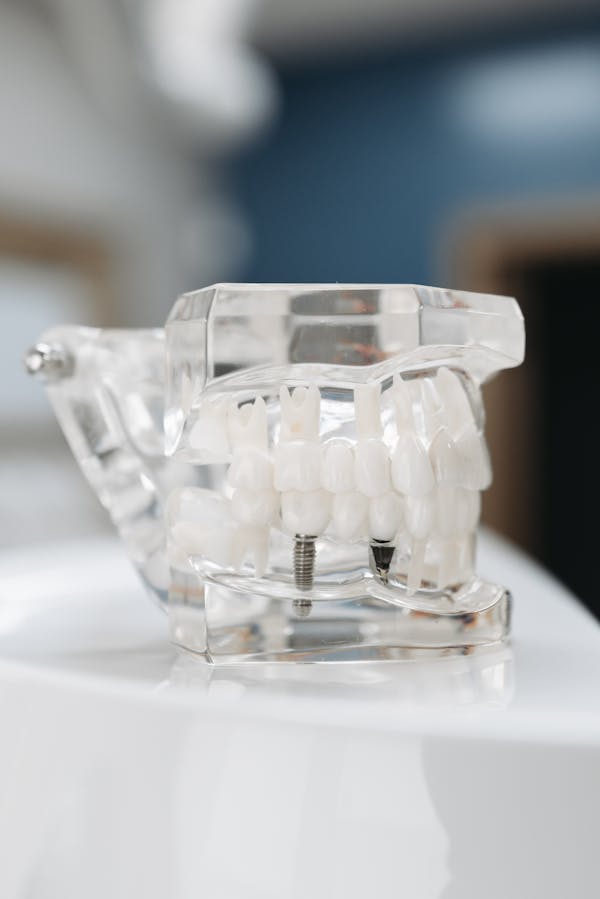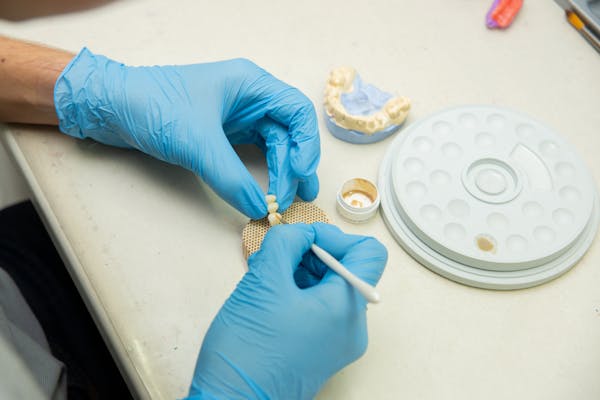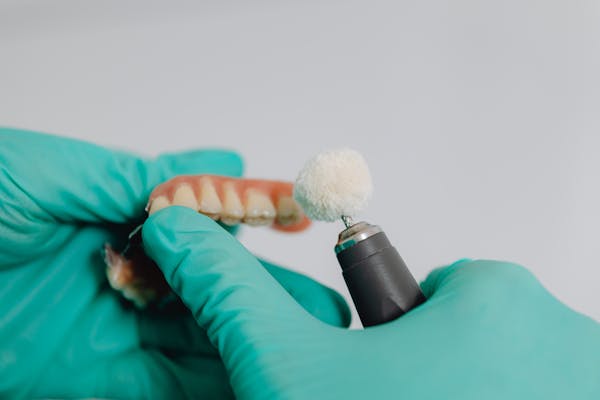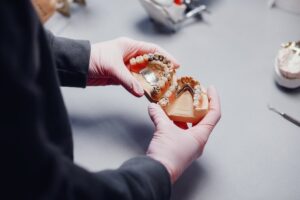Missing a tooth does more than affect your smile—it can impact how you speak, chew, and even your jaw functions over time. Without proper treatment, surrounding teeth may shift, and jawbone loss can occur, leading to long-term oral health issues. Fortunately, dentistry today offers multiple tooth replacement options that restore function and confidence.
This guide explores the most common replacement tooth options, from implants to dentures, helping you understand what works best for your needs and lifestyle.
What are the Options for Replacing a Missing Tooth?
Dentists consider several factors when recommending tooth replacement options, like how many teeth are missing, jawbone strength, and bite alignment. Here are the most trusted treatments available:
1. Dental Implants
Dental implants are a long-lasting solution for replacing a missing tooth’s root and crown. After drilling the bone where the implants need to be placed, a small titanium post is surgically placed into the jawbone, where it fuses with the bone over time through the osseo integration procedure. Once healed, a custom crown is securely attached to restore natural function and appearance.
- Suitable for: One or more missing teeth
- Strength: High
- Lifespan: 15+ years
- Downside: Surgery, cost

Implants don’t wiggle and affect other surrounding teeth. They look and work just like real teeth. This is one of the most trusted single tooth replacement options if you’ve got healthy bones and gums.
2. Mini Dental Implants
Mini implants work like actual full-sized implants but use a thinner post. Dentists use them when bone is insufficient for a complete implant or when supporting dentures do not fit well. Mini implants work well in the proper case. They’re easier to place, don’t need bone grafts, and cost less than full implants. They might fit better if you’ve got narrow bone ridges or can’t heal from a longer surgery.
- Good for: Weak jawbone, loose dentures
- Strength: Medium
- Lifespan: 10–15 years
- Downside: But they’re not always the best. They don’t hold up to as much biting force and may not last as long. Full implants may hold up better if you chew hard foods or grind your teeth.
Mini implants help when full implants are contraindicated, but they aren’t always the top choice. The best dentist in lake ridge can look at your X-rays, ask about your bite, and explain which fits you best.
3. Dental Bridges
A dental bridge replaces a missing tooth by anchoring a false tooth (called a pontic) between two crowns. After a crown-cutting procedure, these crowns are placed over the healthy teeth on either side of the gap. They securely hold the bridge in place.
- Good for: Missing one or more teeth in a row
- Strength: Medium-high
- Lifespan: 7–10 years
- Downside: Shaves healthy teeth

Bridges fill gaps without surgery. But they only work if nearby teeth are strong enough to support the bridge.
4. Removable Partial Dentures
These are custom-made appliances that attach to existing teeth and can be removed for cleaning.
- Good for: Several missing teeth in different areas
- Strength: Medium
- Lifespan: 5–7 years
- Downside: May move while eating
They cost less and help with chewing but may need refitting as your oral tissues change over time.

5. Full Dentures
Full dentures replace all teeth in the upper or lower jaw. They rest on the gums and rely on suction or adhesive.
- Good for: No teeth left in one or both jaws
- Strength: Medium
- Lifespan: 5–8 years
- Downside: Fit can change over time due to bone shrinkage
They offer improved chewing and aesthetics, mainly when supported by mini-implants for added stability.
How to Replace a Missing Tooth Yourself?
You shouldn’t.
Some people try at-home kits or over-the-counter “snap-on” teeth. These may stick temporarily but won’t solve the problem. They won’t prevent bone loss or stop other teeth from shifting—and they can actually damage your gums.
If cost is a concern, talk to your dentist about payment plans or phased treatments. Professional replacement tooth options protect your health, bite, and smile.
A dentist can evaluate your case, take scans, and discuss realistic, safe solutions that fit your budget and lifestyle.
Why Replace Missing Teeth at All?
Letting a gap stay empty for long can lead to problems like:
- Bone shrinking
- Shifting teeth
- Jaw joint pain
- Severe tooth mobility
- Changes to your facial structure
The earlier you fix it, the easier and cheaper it will be. Acting now can prevent you from needing bigger treatments later.
Final Words
A missing tooth isn’t just a cosmetic issue. It affects your daily life—from how you chew and speak to how confident you feel when you smile.
Whether you need implants, dentures, or bridges, tooth replacement options are designed for you.
At Valley Ridge Dental, we make the process straightforward and stress-free. Our team helps you compare solutions, understand your options, and choose what’s best for your long-term health and smile.
Don’t wait for that gap to cause more damage. Call our trusted lake elmo dentist today or book an appointment online. Let’s find the right tooth replacement for you.





